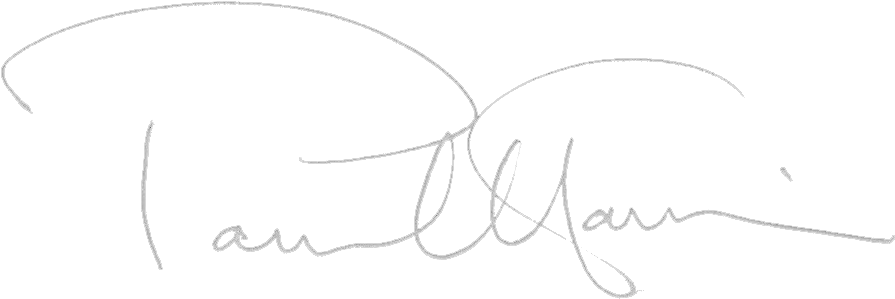Jack Brymer and John Davies - Two great characters!
One of the delights of mid-August, when virtually the entire nation seems to go into hibernation, is that one can catch up and spend time with friends. I did exactly that recently. My teacher and mentor John Davies was staying with me for a few days and another good friend and clarinetist, John Holmes came to visit. The conversation, predictably, darted in and out of the clarinet world and (during lunch at a rather nice local Chinese Restaurant) it turned (for some time) to one of the clarinet’s great figures. Looking back over all my ‘Letters’ I was surprised to find how rarely he has appeared. He was someone of whom the three of us each had an interesting story to tell, so I am about to make amends. I speak of course, of the inestimable Jack Brymer.
John Davies first. John and Jack were friends for over fifty years but their first encounters were important for both. During the late 1930s they were living in Eastbourne on the south coast. Jack was teaching in a local school and John had a small dance band that played regularly in a department store (long since gone) called Dale and Kerley’s. Its tea-room was the glory of the town (especially during the summer season) and John would often employ Jack as clarinetist and saxophonist to fill the ranks. Jack would often ‘solo’ when they occasionally strayed into more modern jazz (rather than the palm-court fare that represented most of their repertoire.) Many years later, when John was senior clarinet Professor at the Royal Academy of Music he invited Jack to give a masterclass. In his introduction, John described Jack’s meteoric rise to fame (thanks to Sir Thomas Beecham) as ‘virtually happening in just a couple of weeks’. Jack’s responded (tongue firmly in cheek and with a sparkle in his eye) ‘I’d like to correct John – it was overnight!’
John Holmes is the Chief Examiner of the Associated Board, that global institution that provide graded musical examinations for (mostly) young developing instrumentalists and singers. John had the extreme good fortune to study with Jack Brymer. It all began when John took part in the Shell-LSO competition. Young players would be awarded the opportunity to sit in with the LSO and gain hugely useful experience. That particular year John wasn’t one of the few winners but Jack, in his very generous fashion, wrote personally to break the news. John plucked up courage (Jack after all was the most god-like figure in the clarinet world at the time) and wrote back asking for a lesson. He was in luck. Jack gave him his lesson and went on to teach him for the next five years.
John has many memories of Jack the teacher. He would be particularly exacting over the tone of chalumeau E. ‘If you can make that sound resonant, full and pure then everything else will fall into shape,’ Jack would say. One exercise was to stand in a corner of a room (or in a cupboard!) and play low Es. The sound would come back at you and you could really work at the quality. Another was to sing the pitch of open G then put the clarinet in your mouth and play it, then remove it and start singing again, then play it… repeating the process over and over again until you reach a stage where sung note and tone where virtually identical. Jack wanted to make you feel the clarinet was very much an extension of yourself. Interestingly Jack would make pretty much the same sound on whatever instrument he happened to be playing. And it would always be exceptionally well in tune.
They would work through the staple repertoire (with Jack continually offering fascinating insights and wisdom) and, from time to time, Jack would recommend less well-trodden works for study. The Krommer Concerto for example was a fairly new find around that time. Jack had discovered it whilst on tour in Japan (when it was spelled Kramar). John remembers being one of the first young British players to study and perform the work. He studied the Mozart Concerto too (which Jack would often perform up to two hundred – or more – times a year.) ‘ You must always imagine there’s someone in the audience who has never heard it,’ he would say. Sometimes they would play duets. Jack had one further (and lasting) influence on his young pupil. Outside the Brymer residence (in South Croydon) sat a gleaming Honda Superdream 400. It was the motorbike to have (and indeed allowed Jack to get around London and do twice as much as everyone else!) John still gets about on a motorbike to this day.
Finally to my Brymer story (and by far the shortest!) In fact I met Jack and heard him perform on a number of occasions, but the most memorable encounter was when I took my pupil Julian Bliss, (who was 8 at the time) to play to him. We drove down to Surrey and Julian played the Rossini Theme and Variations in Jack’s front room. Julian’s virtuosity was remarkable even then and Jack loved the performance. John Davies came too, and the two old friends enjoyed some very spirited reminiscing. It was all very special.
Jack didn’t record very much as a recitalist but (trawling the Internet) I’ve just found (and ordered) a copy of his famous ABK 16 –‘ The Voice of the Instrument: Jack Brymer playing Mozart, Weber, Schumann, Mendelssohn, Saint-Saens, Holbrooke, Hummel, Curzon, Arnold, Templeton and Poulenc.’ He always recorded in one take and John Holmes, who has the recording, tells me you can literally hear the fun that Jack was having in making this disc. I can’t wait for it to arrive - it will bring the sleepy month of August to a wonderful conclusion.


